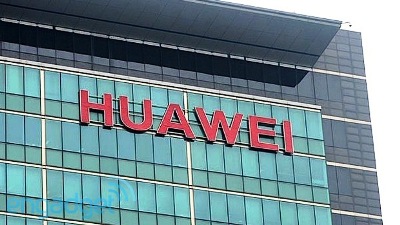S. Sudan says it will not expel Chinese company officials
October 26, 2014 (JUBA) – South Sudan has vowed not to expel any member of Huawei, a Chinese technological company it accused of allegedly forging documents on behalf of its information minister.

“I don’t think it will be in the best interest of South Sudan as a country and the government to expel [the] Chinese company about this claim. There is a way to deal with foreign companies,” a senior foreign affairs official told Sudan Tribune on Sunday.
Dealing with foreign companies, he said, requires “wise thinking” and diplomacy, stressing that most of those companies, especially from the Asian countries like China and India, are government-owned.
“This requires prudence so that they do not slip into foreign relations,”, he observed.
On 14 October.
South Sudan’s information minister, Michael Makuei Lueth, earlier wrote to his foreign affairs counterpart, Barnaba Marial Benjamin, demanding that Huawei be investigated over the alleged forgery claims.
“On 3 October 2014, at 10:48am, we received an email from Mr Sullivan Chen of [the] Huawei Company. The email was sent to the acting director general of information, Mr Paul Jacob Kumbo,” Lueth said in the letter obtained by Sudan Tribune.
Huawei allegedly wrote a letter on behalf of the information minister to the president of the Export-Import Bank of China requesting that funding for South Sudan’s digital migration television project be postponed.
Lueth insisted that the document had been sent to the information ministry allegedly to have it printed on letter head, signed, stamped and later sent to China.
“We are shocked by this Chinese private company’s unbecoming behaviour, which is tantamount to forgery. Huawei wanted to create confusion between our government and the Chinese,” the minister said in his letter.
“I suspect that Huawei has been hacking many government official emails and falsifying and forging documents on behalf of the senior government officials,” it added.
WRONG APPROACH
However, the diplomat said the way the information ministry handled the matter did not reflect well on the country’s foreign policy, particulary its relations with China.
“One thing which our people, especially those in the senior government positions who are supposed to show [an] example and play a role in helping the ministry of foreign affairs [and] international cooperation in the dissemination of the foreign relations and cooperation, do not know, and has been disappointing most of the times, is the way to relate with the foreign companies and their staff members,” he said.
According to the diplomat, the foreign affairs ministry expected matters involving the Chinese firm to be handled in a manner that would not have any negative impact on relations between the two nations.
“I believe there are better ways to handle such cases. Hacking and forgery cases happen anywhere and authorities do not resort to expulsion as a way to address them. We have had similar cases occurring even in western and Asian countries. In the United States, for example, there is a law under which cases of this nature are handled,” the official exclusively told Sudan Tribune.
PERSONAL INTERESTS
Some senior government officials interviewed by Sudan Tribune dismissed the allegations of forgery against the Chinese company, with some citing “personal interest” in the digital migration project.
Displaying documents bearing the information minister’s signature, along with a copy of his passport, an official who did not want to be identified, said that “no forgery had occurred,” but that the reaction has something to do with personal interest and “financial motivation”.
“Let me tell you frankly that no forgery had taken place at any stage of the process as both documents were genuinely processed and given before personal interest emerged. And what I can tell you is that what happened is a clear manifestation of personal interest and financial motivation,” the official told Sudan Tribune.
It is said one of the two Chinese companies competing for the digital migration television project, allegedly offered “huge kickbacks” for it.
“The underlying cause of this reaction is a result of better offer. Huawei is contesting a contract with ZTE which apparently seems to have managed to convince the minister and his group. ZTE offered huge kickbacks. This is motivated and influenced this sudden u-turn from the previous agreement with Huawei,” the official disclosed on Sunday.
“The minister and his team have been thinking about the strategies to cover themselves because they found it difficult … but now it seems they have they have gotten [the] escape route. This reaction suggests he had found an excuse to deny Huawei from getting the contract,” he added.
He said the matter was purely a fight for contract between the two firms.
Meanwhile, the acting director general of the ministry of information broadcasting, Paul Jacob Kumbo, confirmed the account of the minister was hacked and that the attempted forgery emanates from a business fight to win the contract between the two Chinese firms.
“The minister did not write any letter. This is just a forgery and an extension of the fight between the two companies,” Kumbo said on Friday.
“We are told one of the junior staff of Huawei Company is suspected in this. I met the company, including its managing director, who denied any knowledge of the letter,” he added.
A Chinese multinational networking and telecommunications company headquartered in Shenzhen, Guangdong, Huawei considers integrity as its “most valuable” asset.
(ST)
